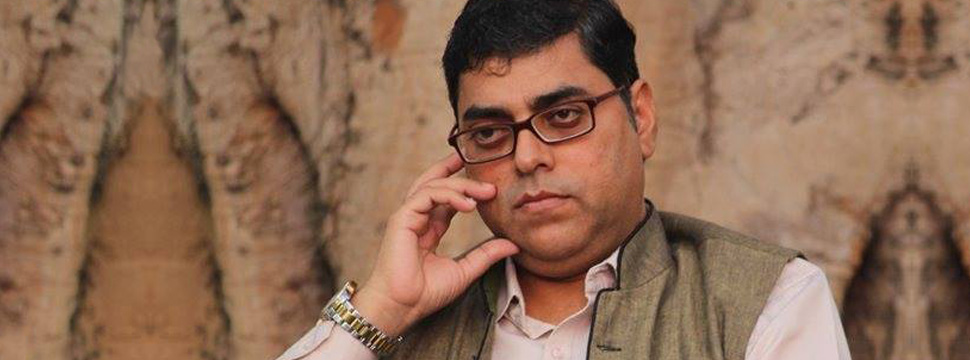-Part of a special feature on literary translation
Ajay Navaria is an Indian writer, scholar and professor at Jamia Millia Islamia in Delhi. He has been writing short stories in Hindi for more than 20 years, and is an expert on caste politics and Dalit identity in India.
As he explains, Northwestern professor Laura Brueck’s translation of Unclaimed Terrain, a collection of his short stories, transformed Navaria’s life and career in unexpected ways.
How did you and Laura work together to produce the translation of Unclaimed Terrain? What was your process?
I cannot put in words how grateful I am to Laura. She is both a good friend and guide to me. She and I met in 2003 while she was doing research in India, and I was immediately impressed by her command of Hindi and her commitment to marginalized issues.
Laura translated some of my work for her thesis before she was asked by Navayana, a publishing house here in India, to translate a collection of my stories. Laura has an incredible awareness of Indian customs and culture, specifically the tradition of Dalit literature and society. Laura was very careful in her translations. She emailed me to ask about specific words, sentences, and the intent of each story. She is very committed to the craft of translation.
Literary translation helps us understand rituals, cultures and movements, particularly those that have been historically overlooked.”
What did you enjoy about working with Laura?
Laura is both a translator and an activist. She understands the critical role translation plays in building cultural tolerance and understanding. Laura’s questions about my stories led me, at times, to rethink my own work. Observing Laura’s process has shown me the value of commitment and passion. I never felt like an afterthought. Getting my work to a wider audience was a top priority for her.
I’m happy to say Laura and I are still great friends. I try to see her every time she visits India. We like to get together to discuss the contemporary literary landscape here. I hope to work with her again soon.
How did Laura’s translation of your work impact your life? What changed for you?
My work has received both national and international recognition because of Laura’s translation. I have been able to travel and speak at universities all over the world, and these trips have expanded my worldview to the benefit of my writing. My latest story, called Vikhandit (Broken) has been published in a Hindi journal, and is set in Athens, Greece and Stockholm, Sweden, two cities I visited while promoting Unclaimed Terrain. Without Laura’s translation, I would never have been able to incorporate those places into my work.
Why is literary translation important?
Literary translation helps us understand rituals, cultures and movements, particularly those that have been historically overlooked. Through my travels (again, a result of Laura’s translation), I learned about the marginalized communities that exist everywhere. In Australia, aboriginal writing is largely invisible, similar to Dalit writing in my country. In Europe, the Roma community — a poor, uneducated group — is just now raising its voice, and translation can help amplify the message. Translation accelerates the process of democratization and modernization. I see translation as key to justice, equality and peace.


